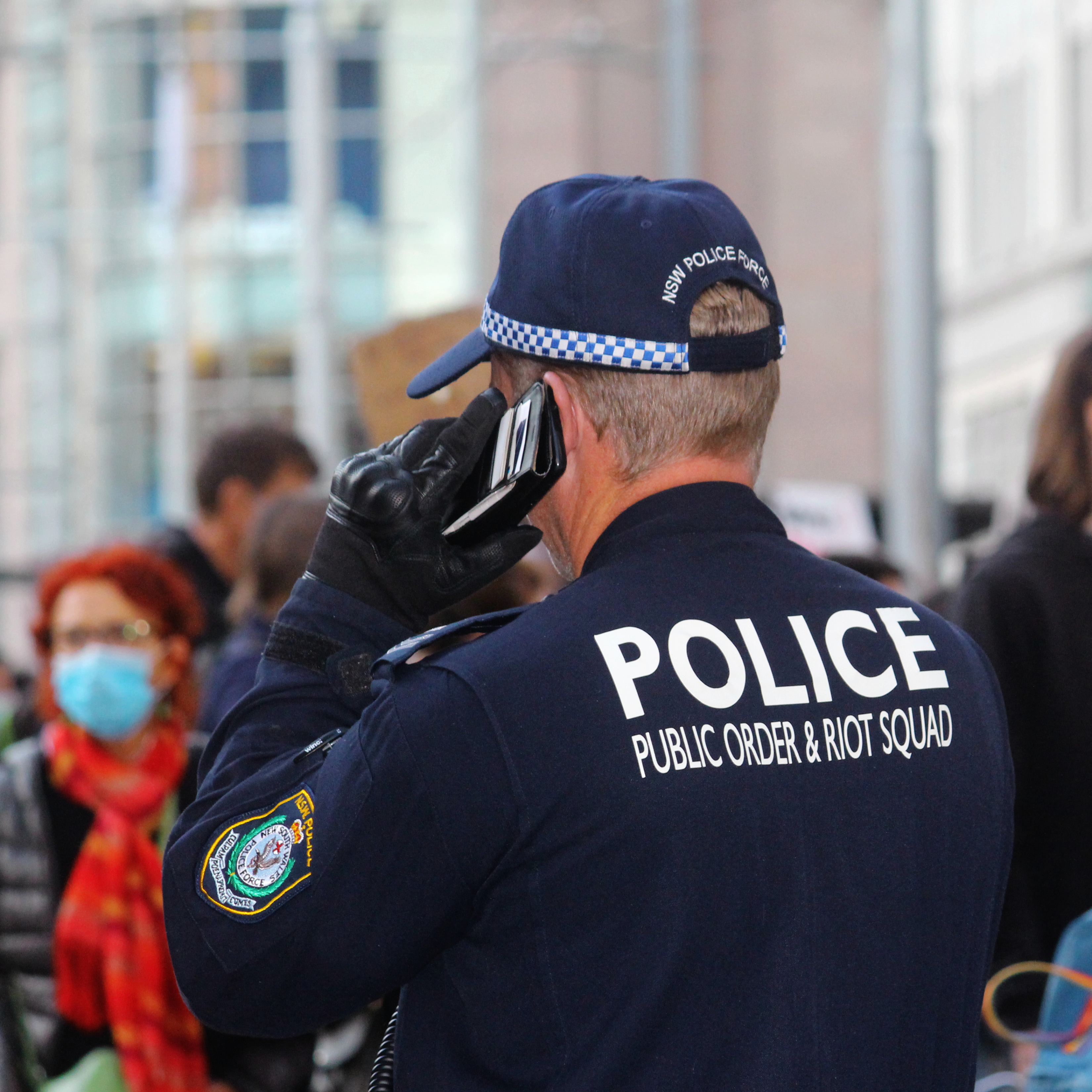Share This Article
By Poppy Morandin.
The NSW Police have leaked the emails of over 150 complainants who contacted them in order to raise concerns regarding officer’s use of force following the Sydney Black Lives Matter protest on Saturday, 6 June.
Samuel Leighton-Dore was not present at the confrontation between the protestors and police at Central Station, however he felt motivated to voice his complaints after viewing the distressing footage in which officers deployed pepper spray into the crowd of protestors indiscriminately, after allegedly kettling them into the space.
Whilst he initially approached the Law Enforcement Conduct Commission, they advised that the NSW Police would be handling the initial complaints and inquiries.
Craig Lowery, Professional Standards Manager of the Central Metropolitan Region provided a reply noting: “this matter has been given a high priority. As you would be aware, there was a considerable volume of information to review and assess.”
“A thorough review of this matter and all available holdings, to include a large amount of police Body Worn Video footage, has been conducted. After reviewing all the available information, I have deemed that there is no reason to conduct a further internal investigation.”
“You may not necessarily agree with the outcome of my review, but hopefully you can understand the reasons I have given and take solace knowing the Law Enforcement Conduct Commission will review this decision and the NSW Police Force can be compelled by this Commission to conduct an investigation if they disagree with my assessment of the evidence.” he continued.
Complainants and various individuals voiced their dissatisfaction with the decision, one commentator stating: “police investigating police and deciding what police don’t need any further investigation…again.”
“Complete betrayal of public trust and accountability.” summarised another.
However, after receiving the one-page letter regarding the matter from Mr Lowery, Mr Leighton-Dore received another email from NSW Police shortly after.
It contained the original letter, with an additional page which contained text beginning “Please note; outcome letter was sent to all of the following complainants via email (Bcc recipients not shown above):” with the email addresses of 150 complainants listed below.
“So, the NSW Police just forwarded me, accidentally I assume, the names and emails of every person who complained about the Central Station incident. Felt like a significant data breach, so I called up to suggest an OAIC [Office of the Australian Information Commissioner] report, and they hung up on me.” said Mr Leighton-Dore.
Another complainant, whose email address was contained on the list replied, addressing NSW Police: “I’d like an explanation of how this occurred, are you informing those impacted, what steps you are taking to meet Aust. privacy principles & what if any, internal discipline is occurring?”
A spokesperson from the NSW Police has confirmed the email, describing that it “appears to be an administrative error,” however they are making “inquiries”.
Mr Leighton-Dore has furthermore claimed that he was previously told that he was the only individual who had complained, which forms stark contrast to the long list of emails.
According to section 169A of the Police Act 1990 (NSW) a member of the NSW Police Force must not disclose to any person the identity of a complainant unless the disclosure is made in accordance with guidelines established by the Commissioner, with the consent of the complainant, in a situation where it is required by law, or for the purposes of any legal proceedings before a court or tribunal.
The Law Enforcement Conduct Commission (LECC) currently experiences chronic underfunding which significantly impedes its role as an investigative watchdog, due to the lack of resources available.
Whilst the LECC encourages the public to report suspected incidents of serious misconduct and maladministration by the NSW Police Force, it is reportedly only able to properly investigate around 2% of matters.
Advocates have called for greater funding to be allocated to it and other associated investigative bodies, as to prevent the continual situation in which the NSW Police Force has endeavoured to investigate itself and even its superiors, creating evident issues within bias.









